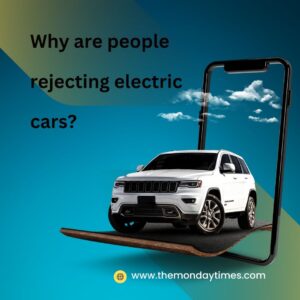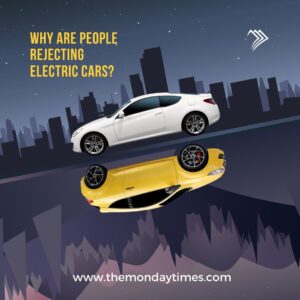Why Are People Still Rejecting Electric Cars in 2023?
Electric vehicles (EVs) have come a long way in recent years, with major improvements in range, performance, and availability. However, many consumers remain hesitant to make the switch from gas to electric. What’s holding people back from adopting EVs in 2023?

High Upfront Cost
The steep sticker price of EVs compared to similar gas-powered models deters would-be buyers. Although EV ownership costs less over time, not everyone can afford the initial outlay. Federal tax credits up to $7,500 help offset the cost, but credits phase out once automakers sell over 200,000 EVs.
Lack of Public Charging
Range anxiety persists despite EVs that can now travel 250+ miles on a single charge. Drivers worry about running out of juice on road trips, especially in rural areas with sparse charging infrastructure. More public EV charging stations are coming, but the network remains limited outside major highways and cities.
Insufficient Range Automobile
Although today’s EVs boast much longer range than early models, some still only go 100-150 miles before needing to be recharged. This makes them impractical as a sole vehicle for drivers who take frequent long trips. However, short-range EVs work well for in-town use if owners have a second vehicle for highway driving.
Perception EVs Are Unproven Technology
There is a lingering perception among some consumers that EVs are a new, unproven technology. In reality, EVs have been around for years and have proven reliable. But overcoming the conservative preference for tried-and-true gas vehicles remains an obstacle.
Battery Life Concerns

Another common worry is that EV batteries will wear out quickly and need replacement too soon. However, today’s lithium-ion batteries commonly come with at least an 8-year/100,000-mile warranty. Properly maintained, an EV battery should last 10 years or more.
Availability of Desired Models
Shoppers aren’t yet finding the EV options they want in certain vehicle classes. Trucks and affordable SUVs are still underrepresented among EVs, though more choices are coming. Geographic availability of some EVs remains limited as well.
Charging Takes Too Long
It’s true charging an EV takes significantly longer than pumping gas. But for most drivers doing overnight charging at home, the extra time is a non-issue. Charging speed keeps improving too – newer fast chargers can add 200+ miles of range in 15-30 minutes.
Misconception EVs Are Sluggish
Early EVs did tend to be slower for the sake of efficiency. But today’s EVs often outperform comparable gas cars, offering rapid acceleration thanks to instant torque from their electric motors. EV performance capabilities expand each year. return news
Fear of the Unknown
For many consumers, EVs represent a big, unfamiliar change from the traditional gas vehicles they’re accustomed to. Fear of the unknown leads some to reject EVs without fully considering their benefits and capabilities. It’s human nature to shy away from dramatic shifts.
Why are people rejecting electric cars
In the end, familiarity, education and experience will overcome much of the hesitancy around EVs. But even without mass adoption yet, the electric transition is fully underway. It will take time, but momentum is steadily building.